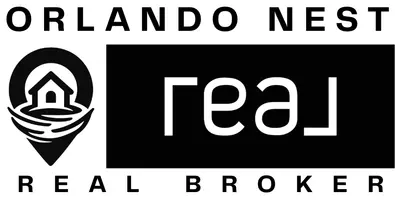2025 Guide: What Home Sellers Need to Know About Title Insurance in Orlando, FL

What You Should Know About Title Insurance in Florida
- Title insurance protects against past ownership defects — liens, recording errors, fraud.
- One-time payment at closing covers you for as long as you own the property.
- Lenders require policies; owner’s policies protect your equity.
- Florida rates are standardized by state rule; service fees vary.
- In Orlando, sellers often pay for the owner policy, buyers for the lender policy — customs vary.
When purchasing property in Florida, one of the essential but often overlooked considerations is title insurance. Many buyers and even some sellers aren’t sure what it really covers, how much it costs, or why it’s needed. In Orlando’s active market — from Lake Nona’s medical city to Winter Park’s historic streets — transactions move fast, and title insurance is the safeguard that ensures you actually own what you think you’re buying.
As a local Realtor®, I’ve guided many clients through the closing process. Title insurance isn’t flashy, but it’s one of the most important protections you’ll secure in a deal. Let’s dive into why it matters and how it works in Florida.
Talk with Ted about your closingWhat Is Title Insurance and Why Is It Important?
Title insurance is a form of indemnity insurance that protects you from financial loss related to defects in a property’s title. Unlike auto or homeowner’s insurance, which cover future risks, title insurance covers past events that might affect ownership — issues like unpaid liens, boundary disputes, or recording errors that only surface later.
Why You Need Title Insurance in Florida
Florida’s market is fast-moving. In places like Lake Nona, where new construction and resales happen constantly, turnover is high — and with every ownership change comes a chance for paperwork errors or unresolved debts. A missing release from a prior mortgage, an unpaid contractor, or even a forged deed can cloud ownership. Title insurance ensures these problems don’t become your responsibility.
Example: A Lake Nona buyer discovered during closing that a prior owner’s contractor lien had never been satisfied. Because the buyer had an owner’s title policy, the lien was resolved by the title company at no cost to them, and the closing stayed on track. Without coverage, the buyer could have faced thousands in legal expenses or delays.
Pros and Cons of Title Insurance
Pros
- Protection from financial loss — covers legal defense and claims related to covered title defects.
- One-time cost — a single premium at closing, valid as long as you own the property.
- Required by lenders — protects their investment and ensures loans can be secured on the property.
Cons
- Upfront cost — premiums add to closing costs, though peace of mind outweighs the expense for most buyers.
- Limited scope — only covers past issues, not future ones (that’s what homeowner’s insurance is for).
How Much Does Title Insurance Cost in Florida?
The cost of title insurance in Florida is regulated by the state — meaning premiums are standardized based on the property’s value. For example, coverage up to $100,000 is $5.75 per $1,000; amounts above that scale slightly lower. What varies between providers are the service fees for the title search, exam, endorsements, and closing coordination.
Neighborhood Cost Example
In Lake Nona, where the average home price hovers around $500,000, a buyer can expect premiums in the range of $1,000–$2,500 depending on the combination of owner’s and lender’s policies. Luxury properties in Winter Park or waterfront homes in Seminole County will see proportionately higher premiums due to coverage amounts.
The Title Insurance Process in Florida
Here’s how the process usually unfolds once you’re under contract:
- Title Search — A comprehensive review of public records to identify liens, unpaid taxes, or other encumbrances.
- Title Commitment — A preliminary report showing requirements and exceptions that must be cleared before issuing a policy.
- Clearing Issues — The title company resolves outstanding items — from paying off liens to correcting recording errors.
- Closing — Final documents are signed, funds disbursed, and ownership officially transferred.
- Policy Issued — The owner’s and lender’s policies are finalized and remain in force.
Typical timeline: 10–15 business days. In Orlando’s high-demand neighborhoods, starting early ensures there are no last-minute delays.
Local Neighborhood Considerations
Different parts of Orlando carry different title risks. In master-planned communities like Lake Nona, frequent resales mean liens or HOA issues are common. In older areas like College Park or Winter Park, recording errors and boundary disputes are more likely. Knowing the local landscape helps anticipate potential complications.
- Laureate Park — innovative new homes; watch for shared alleyway easements.
- NorthLake Park at Lake Nona — family-friendly, high transaction volume; check HOA compliance letters closely.
- Baldwin Park — redevelopment from a former base; boundary descriptions sometimes require extra review.
Common Title Issues in Florida
- Unpaid taxes — previous owners’ taxes can create liens that must be resolved.
- Fraudulent deeds — forged signatures or improper transfers may cloud ownership.
- Boundary disputes — especially in older neighborhoods, surveys sometimes reveal encroachments.
Example: A buyer in Winter Park found during the survey that a neighbor’s fence encroached two feet into their lot. Title insurance covered legal expenses to negotiate an easement, ensuring a smooth closing.
FAQs About Title Insurance in Florida
Is title insurance mandatory in Florida?
No. Lenders require a lender’s policy, but an owner’s policy is optional. Still, it’s strongly recommended for full protection.
Can title insurance cover future issues?
No. It only covers issues that existed before the policy date. Future problems aren’t included.
How is title insurance different from homeowner’s insurance?
Title insurance protects against past defects in ownership. Homeowner’s insurance covers future risks like fire or theft.
Who pays for title insurance in Florida?
It varies by county and contract negotiation. In Orlando (Orange County), sellers usually pay the owner’s policy and buyers cover the lender’s policy.
Are there alternatives to title insurance?
Some alternatives exist, like title warranties, but they offer less comprehensive protection. Title insurance remains the gold standard.
Questions about your Orlando closing?
A quick call can clarify who pays what, how long the process takes, and why coverage matters.
Call or Text (321) 321-2372 Email TedGoogle Update Teaser
Title Insurance in Florida — What Orlando buyers should know
One-time cost. Long-term protection. Learn how Florida’s standardized rates and local customs affect your closing. Learn More
3:4 Image Prompts
- Prompt: Photorealistic 3:4 image of a modern single-family home in Laureate Park, Lake Nona, at sunset. White stucco, black windows, Florida landscaping, brick paver walkway, golden hour glow.
Alt: Laureate Park home at sunset.
Title: lake-nona-home-title-insurance
SEO: Lake Nona home exterior — illustrating title insurance coverage.
Filename: lake-nona-title-insurance-3x4.webp - Prompt: Photorealistic 3:4 image of a title office closing table in Orlando. Documents stacked, keys on table, soft natural light, small palm plant in background.
Alt: Orlando title office with closing documents.
Title: orlando-title-office-closing
SEO: Orlando title office — symbolic of closing protection.
Filename: orlando-title-office-3x4.webp - Prompt: Photorealistic 3:4 image of Winter Park street with brick road and historic home under oak canopy, early morning light.
Alt: Winter Park historic street.
Title: winter-park-title-example
SEO: Winter Park neighborhood — common place for title insurance issues.
Filename: winter-park-title-3x4.webp
Categories
Recent Posts










GET MORE INFORMATION

